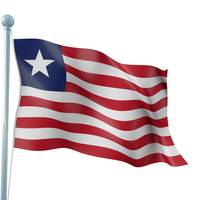ClassNK Approves New Corrosion Resistant Steel
ClassNK has issued approval for Nippon Steel & Sumitomo Metal Corporation’s newly developed corrosion resistant steel (NSGP-2) for use on the upper deck and/or inner bottom of crude oil tanker cargo oil tanks (COT). Following earlier approvals of steels for the inner bottom plating of COTs, this marks the first time that approval has been granted for corrosion resistant steels for both the top and bottom parts of the COT, providing owners and shipyards with a practical alternative to coating systems. In order to reduce COT corrosion and improve crude oil tanker safety, new amendments to the SOLAS Convention were issued in May 2010 requiring oil tankers over 5…
Liberia Endorses Videotel Training Programs

Seven Videotel training courses have been approved by the Liberian International Ship and Corporate Registry (LISCR/the Liberian Registry). This makes 17 total Videotel courses approved by LISCR and further cements Videotel’s long term connection with the Liberian Registry. The seven Videotel courses approved are Advanced Oil Tanker Safety, Enclosed Space Entry and Emergency Awareness, ECDIS Training, GMDSS Training, IMDG Code Training, Marine Environmental Awareness and Maritime Security Awareness.
Legal Matters
Senator Slade Gorton (R-Wash.) introduced the "States Prevention of Oil Tanker Spills Act" (S. 2506), which seeks to reinstate Washington state oil tanker safety laws overturned by the Supreme Court in Intertanko v. Locke and United States v. Locke. In a press release, Senator Gorton said, "I disagree with the Court's decision, because I believe Washington State should be allowed to protect its shores as it sees fit." The Gorton legislation would reinstate the right of all states to adopt additional standards beyond existing federal requirements governing the operation, maintenance, equipment, personnel and manning of oil tankers. While the legislation would apply to all coastal states, Gorton's interest is focused on recently overturned Washington statutes.
Commission Urged to Fit Black Boxes For Oil Tanker Safety
AMRIE (The Alliance of Maritime Regional Interests in Europe) last week presented a series of recommendations aimed at improving levels of oil tanker safety in response to recent Commission proposals on the safety of the seaborne oil trade. The AMRIE Paper calls on the Commission to lead the way in introducing requirements for Black Boxes to be fitted in all existing cargo ships, going beyond the IMO (International Maritime Organization) suggestion of new cargo ships only. AMRIE believes that the speedy introduction of Voyage Data Recorders to all vessels is imperative if the Commission is to achieve a 'Safety Culture' in Shipping. AMRIE…
Commission Urged to Mandate Marine
AMRIE (The Alliance of Maritime Regional Interests in Europe) will today present a series of recommendations aimed at improving levels of oil tanker safety in response to recent Commission proposals on the safety of the seaborne oil trade. The AMRIE Paper calls on the Commission to lead the way in introducing requirements for Black Boxes to be fitted in ALL existing cargo ships, going beyond the IMO (International Maritime Organisation) suggestion of new cargo ships only. AMRIE believes that the speedy introduction of Voyage Data Recorders to all vessels is imperative if the Commission is to achieve a ‘Safety Culture’ in Shipping. AMRIE…
Welcome The Little Black Box
There is a groundswell of commitment for mandating the installation of "black boxes" aboard ships, so that in the in the unlikely case of a disaster, history will not repeat itself. At an estimated cost of $75,000 to $150,000 per ship, however, safety will not come cheaply. If it has not already, in a few years time the name Erika will conjure many of the same emotions and financial achings as the name Valdez. The tanker that broke up and sank off the coast of France just prior to Christmas 1999 has resulted in a veritable groundswell of political and industry activity which will likely result in fundamental changes to the way in which ships — particularly those carrying oil products or hazardous materials — are outfitted and operated.
Editor’s Note
This month’s edition amply displays how two of the maritime market’s driving forces — technology and legislation — simultaneously clash, meld and otherwise work together and apart to dictate the look, design and outfitting of ships and boats of tomorrow. The marine market, which has often and unfairly been labeled conservative, is embracing many sweeping changes, which are designed to enhance safety and operational efficiency. As usual, the impetus for change has been an unsightly and costly — both in terms of sullied beaches, animals as well as tarnished reputations — casualty. In this instance, the name Erika is being thrown about with the same invective as Valdez was more than a decade ago; a name that is sure to become synonymous with the drive for safer ships.
France Takes Steps Toward Safer Ships
Transport Minister Jean-Claude Gayssot supported a French industry charter to tighten oil tanker safety aimed at making oil spills like the recent Erika disaster a thing of the past. Gayssot said a pact signed by French oil companies, shipowners and charterers showed they were impatient to move immediately to improve safety standards rather than wait for international regulations to be tightened. Signatures on the charter, which followed five hours of negotiations, include officials from TotalFina, Elf Aquitaine, BP Amoco France, Royal Dutch/Shell France, Esso France, ship classification firm Bureau Veritas and petroleum industries federation UFIP.





